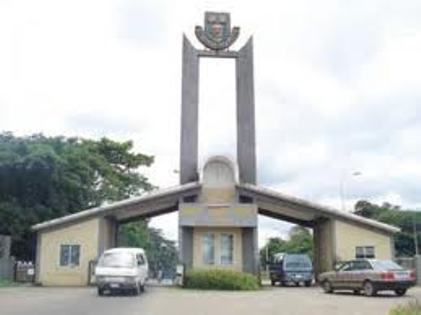
Adedotun Eyinade
Dotun, a graduate of Microbiology from OAU and formerly Senior Associate with KPMG Nigeria, sent this piece from New York where he currently resides, as a Global Fellow of Acumen Fund
Earlier in November, Nigeria was in the Indian news for, the umpteenth time, the wrong reasons. As we are wont to attract the most negative reporting in the global press, the issue at stake this time was the death of a Nigerian in the tourist city of Goa and the fiery hot reaction of Nigerians who took to the streets to vent their anger. The deceased was a drug dealer, the Indian press screamed, since it fitted the narrative that Nigerians are a drug peddling lot and petty criminals up to no good. Symptomatic of xenophobia, a viral video appeared of an unarmed Nigerian being lynched by a mob in the full glare of Indian police, a worrying signpost warning Indians of drugs and the Nigerians peddling. As if that wasn’t enough, wait for this, there were reports of Goa‘s Chief Minister comparing Nigerians to “cancer”, a statement which he retracted after being called to order. It was a classic case of Nigeriaphobia, though one finding nuanced expression in a society struggling to get over its primal demons despite its storied economic growth and the glitzy Mumbai and Bangalore.
Curiously, the Indian incident was matched with an official response that was thankfully appropriate, even though short-lived. The employment of subtle threats by the Nigerian High Commissioner to call the Indian officialdom to order perhaps resulted in the arrest of some suspects and a retraction of the xenophobic remark of Goa’s Chief Minister who should know better. The incident also earned the attention of our National Assembly to great relief; at least it got a mention in one of their sessions. It would be asking for too much to expect a thorough exploration of the issue; public hearings on Nigeria-baiting is a tall dream. The National Assembly is too engrossed in weightier matters of urgent national importance to be bothered about the travails of countrymen in search of the golden fleece that eluded them in their homeland.
For fellow countrymen in Nigeria, the recent wave of xenophobia was not uncommon and attracted mixed reactions: from reverse racism draped in comments like: imagine those curry-eating, head-shaking Indians, to gratuitous bouts of griping on the parlous state of the nation that pushed Nigerians to seek better fortunes in India of all places, to naïve and uninformed schadenfreude: serves them right, our people are peddling drugs in other countries anyway . Sadly ,the poignant issues at the heart of the matter are not addressed in the entire gamut of ensuing commentaries. Since the realities confronting Nigerians are visceral enough, there is little incentive to attempt to identify with the pains of others residing in climes bereft of the warmth of home. This explanation is an easy copout until one ventures out of the comfort zone that is home.
A personal experience has caused me to rethink the appropriate reaction to shoddy treatment of Nigerians on account of nationality and our dismal perception in the comity of nation. As part of a programme I am on in the United States, I am expected to do a field placement with an Indian based company. Alongside three other participants from different counties, I put in my application for an Indian visa in New York City which should, according to the outsourcing company in charge of visa processing, take 3 to 5 working days. Then the waiting game commenced. By the second week, I started to feel concerned especially when my colleagues had gotten theirs. I started to make daily visits to the Outsourcing office and the Indian consulate in New York and they kept dropping hints that it would take a while for me to get the visa. Reason: it was a Nigerian passport. An official at the Consulate told me they needed clearance from New Delhi before it could be issued, leaving me to wonder why the same treatment didn’t apply to my colleagues. Every explanation seemed to end with the referral to the provenance of my passportNigeria requiring extra attention and hence the wait. Eventually, I was forced to withdraw my application for the visa in the 5th week of application after I envisioned it gathering dust in some shelf while awaiting clearance from some bureaucrat in New Delhi. During the waiting spell, I rationalized the possible reasons that would justify the extra scrutiny that my passport invited and I realized they were flawed when placed in the context of providing the same required documentation as my colleagues who got theirs without much fuss. The import of this selective treatment, however, wasn’t lost on me.
As a nation, we cannot help the way other people perceive us but it is within Nigeria’s diplomatic purview to ensure that conscious efforts are made to ensure that Nigerians are fairly treated with the same measure of decency accorded to other nationalities and commensurate with our humanity. By this I do not mean the frequent, knee jerk threats issued by diplomats or the foreign ministry when Nigeriaphobia rears its head in the media. Rather I speak of a robust response to such unsavoury incidents that sets a firm precedent and forestalls a repeat. It starts with a proactive engagement of Nigerian embassies with Nigerian residents towards fostering a sense of national pride, not the neglect that is the norm. The recent rash of attacks by Nigerians on Nigerian embassies in some countries invites a deeper exploration of the issues at the heart of such incendiary violation of our national space in foreignlands . We cannot rein in scatter heads like the Nigeria-bashing US Senator Ted Cruz or more recently the rightwing talking head Ann Coulter – who, in her bitchy[ rage against Obamacare, remarked that the University of Lagos offers Credit Card fraud as a course and that we are a nation of scammers. What we can do is build a culture of national respect that provokes a commensurate national outrage towards such unthinking outbursts.
As it would be wishful thinking to solely place the responsibility for the cultivation of this culture of national respect at the doorstep of the National Assembly or the Ministry of Foreign Affairs, I propose more civic engagements like peaceful protests at the embassies of offending nations and a boycott of such countries’ products as a way of registering angst at the mistreatment of our compatriots in other climes. We should be able to summon the same outrage and fervor that a debasement of the religious symbols we cherish invites. Yes, as a nation, we are bungling on many scores but we need to intervene collectively to stem the ugly tide of Nigeriaphobia.
Established in March 2013, JarusHub is a Nigerian information hub with focus on career and management. It is rated Nigeria's most authoritative destination for online career resources. It parades an array of Nigerian professionals who share their career experiences with a view to bridging career information gap and mentoring a generation to success. Whether you're a student, a recent graduate or an established professional, or even an executive, you will always find something to learn on JarusHub. All enquiries to jarushub@gmail.com or 0808 540 4500. Facebook: www.facebook.com/jarushub; Twitter: @jarushub or @mcjarus.
Path to Big 4: Stream 11
April 4, 20245 Best Useful Applications Of AI in Modern World
November 17, 2023
Let us have your say by leaving a comment belowCancel reply
Recommended For You
-
HOW TO ASK FOR A PAY RISE
June 29, 2016 -
WHO IS WHO IN CORPORATE NIGERIA: ASUE IGHODALO
May 18, 2018







